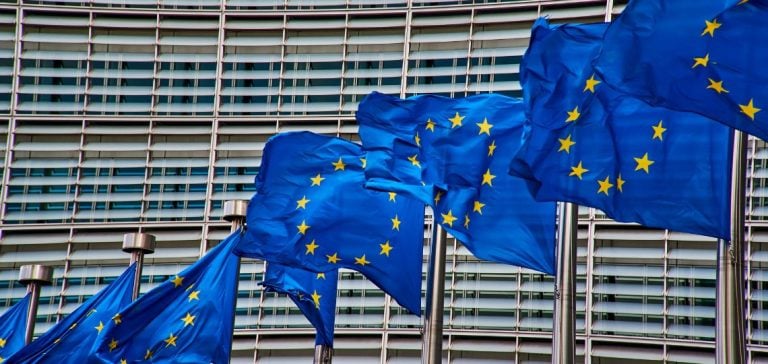The European Union’s Carbon Border Adjustment Mechanism (CBAM), designed to impose a carbon tax on imports to reduce greenhouse gas emissions, is at the center of discussions regarding its potential impact on Asia’s voluntary carbon credit market and export product prices. At the Asia Climate Summit held in New Delhi on October 24, experts shared their views on CBAM’s anticipated influence on these two aspects.
CBAM aims to tax imported goods based on their associated carbon emissions, applying an entry tax according to the carbon intensity of products. However, voluntary carbon credits, primarily used by companies to voluntarily offset emissions, are not eligible for CBAM compliance requirements. Alfredo Nicastro, Senior Vice President at StoneX Carbon Solutions, clarified that CBAM will not increase demand for voluntary carbon credits, as these credits are excluded from compliance with European carbon tax requirements. According to him, “VCM (Voluntary Carbon Market) credits cannot be used for carbon tax compliance, meaning there will be no increase in demand or price in the voluntary market due to CBAM.”
A New Type of Compliance Certificate
To meet CBAM requirements, a specific certificate, referred to as a “CBAM certificate unit,” may be needed for companies seeking compliance. This certificate would verify that imported products into Europe meet carbon reduction standards. Renato Roldao, a member of the European Commission’s International Carbon Pricing and Market Diplomacy Task Force, pointed out that some compliance carbon credits, accepted in other countries for carbon tax purposes, could become eligible for CBAM through international agreements.
Moderate Impact on Product Prices in Asia
Panelists agreed that CBAM will have minimal impact on the prices of finished products in Asia. Hew Slater, an energy and climate specialist at ClientEarth in Beijing, stated that less than 2% of China’s exports to the EU will be subject to CBAM, primarily affecting industries like steel, battery metals, cement, and aluminum. According to Roldao, CBAM will focus on specific imports, such as cement, iron and steel, aluminum, fertilizers, electricity, and hydrogen, with an assessment of embedded carbon emissions at the product level.
Nicastro added that while CBAM may slightly influence the prices of raw materials imported into Europe, costs will ultimately be borne by end-buyers in Europe. This cost transfer to European buyers minimizes the impact on prices in Asia, thereby maintaining stability for Asian producers. Roldao explained that “the price effect will mainly be felt at the product level in Europe, not in Asia.”
Extension of CBAM to Other Sectors
CBAM is also expected to include additional sectors covered by the EU’s Emissions Trading System, notably maritime shipping, where emission offset costs are also expected to be transferred to European buyers. According to Nicastro, this model enables Europe to strengthen its climate objectives without disadvantaging Asian exporters, who benefit from this approach by avoiding a direct impact on domestic prices.
In summary, although CBAM is seen as a tool for controlling emissions on imports for Europe, it seems unlikely to disrupt the Asian voluntary carbon credit market or significantly increase costs for Asian producers, due to the structure of passing costs to European buyers. However, the introduction of specific CBAM certificates could initiate a new dynamic of compliance in trade relations between the EU and its international partners.






















